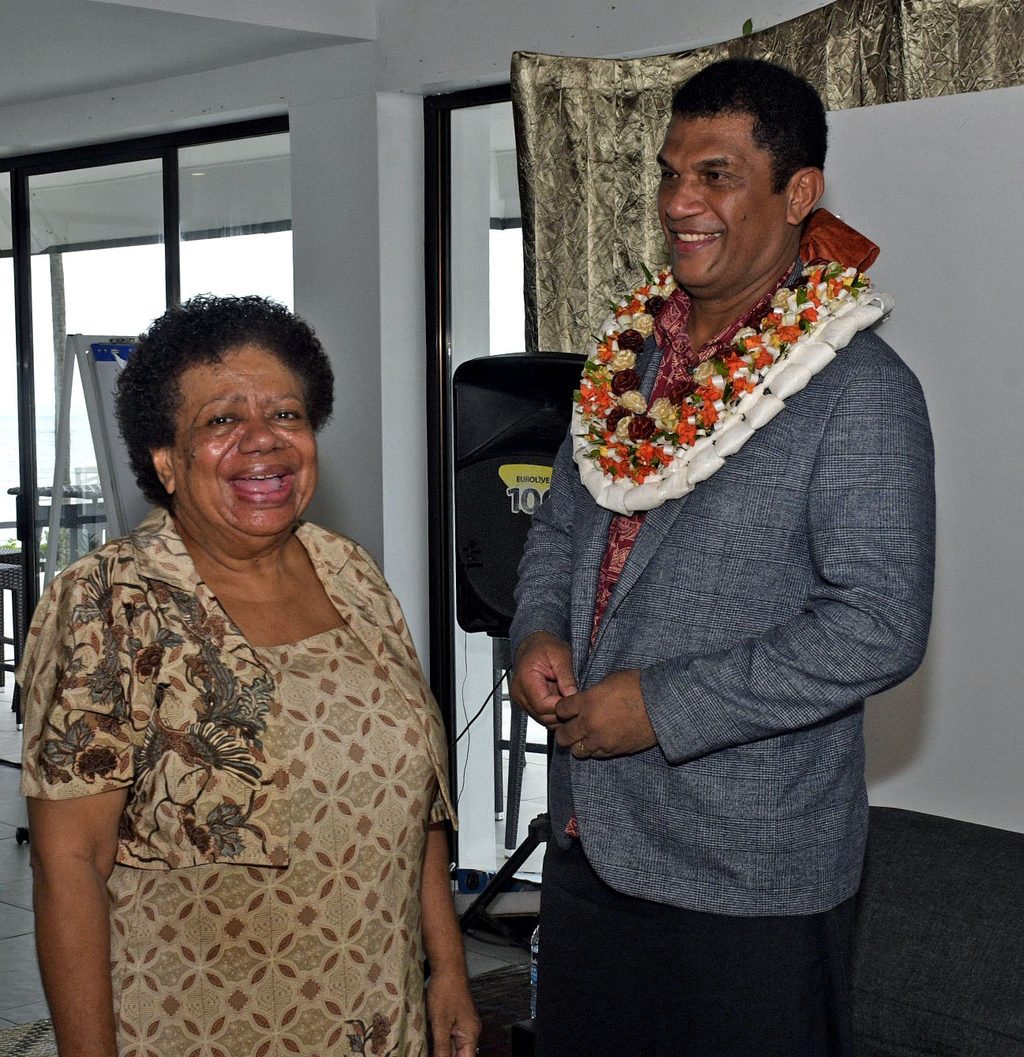She has a name that echoes through Fijian classrooms — synonymous with discipline, excellence and integrity.
For decades, Ms Rokoua Naiyaga shaped the minds and futures of young women as head of one of the nation’s premiere girls’ schools. Later, as deputy secretary for education (Professional) she stood at the epicentre of educational decision-making in Fiji.
Today, she’s back in the national spotlight – this time leading a task of monumental importance: the first comprehensive review of the Fiji Education Act 1966 in nearly 60 years.
It’s a once-in-a-generation opportunity to reshape the nation’s education system, and for Ms Naiyaga, it’s personal.
“My experience as deputy secretary professional, has given me understanding and overview of the whole education system and the ability to make a comparison between where we were and what is happening now in the ministry and what is happening in other countries in curriculum development and examination and assessment and to make recommendations on what would be good for the future,” she said.
The Education Act, crafted in 1966 – in the early post-colonial years, no longer reflects the complexities of a modern Fiji, let alone global educational trends.
Yet for decades, efforts to reform it have stalled. Now, that’s changing.
“A comprehensive exercise such as the review of the Fiji Education Act 1966 takes political will, funding and people with relevant expertise fully dedicated to the conduct of the review,” Ms Naiyaga said.
“In the past, there have been attempts to review this Act, in-house, using officers within the ministry of education but this was not successful as these officers already had full workloads.”
This time, there’s momentum – the minister for education has secured Cabinet approval, donor funding has been sourced, and a full team of education and legal consultants has been appointed solely for the task.
“These are the enabling factors that has made the education review possible,” she added.
Scaling and standards: A case for assessment reform
One of the controversial changes in Fiji’s education system came in 2015, when scaling of examination marks – a method widely used to ensure fairness across subjects and cohorts was scrapped.
For Ms Naiyaga, who oversaw the MOE’s examinations and assessment unit during her time in the ministry, that decision remains under scrutiny.
“For example, in the past when I was in the ministry, examinations always had scaling of marks,” she said.
“Many countries, such as the UK, China and Singapore employ scaling techniques to ensure fair and comparable results across different subjects and years.
“In Fiji scaling was removed in 2015.
“This was confirmed to me during the consultations.”
Now, she says there’s a growing call from academics and officials alike to bring back scaling.
“There are academics and ministry of education officials recommending bringing back scaling to the Fiji education system,” she said.
“The public consultations should gather information on the public’s view on this and a decision can be made for the Act.”
Quality control and curriculum
During her tenure as deputy secretary, Ms Naiyaga also chaired two internal powerhouses of policy: the curriculum council and the examination review committee, both of which played critical roles in safeguarding standards.
“The position I held in the ministry has the responsibility of providing professional leadership to the curriculum development unit and the examinations and assessment unit,” she explained.
“Part of this responsibility is to chair the curriculum council, an in-house council that provided advice on the curriculum, approved changes in the curriculum and ensured the implementation of quality curriculum.
“The examination review committee was also an in-house committee that vetted all external examination papers for quality and standards and gave approval before the papers were printed and circulated for students to sit.”
That level of rigour, she said, must return and the review would include an overhaul of the Examinations and Assessment Act to ensure international alignment.
A national effort
But Ms Naiyaga knows the task cannot be carried out in isolation.
A successful education law must be the product of inter-ministerial collaboration and public engagement.
“Inter-ministerial coordination is critical to the success of the review.
“That is why the review team had two days of consultations with government ministries to gather their view on the Education Act and how their own Acts and policies relate to children and students. Collaboration is important for success.”
Most importantly, she says, the review must reflect the voices of everyday Fijians; parents, teachers, and students because education affects everyone.
“Like most teachers and school leaders, our aim is to provide quality education for our students so they can be successful in life.
“Quality education, access and equity for all of Fiji’s children is the priority in this review.”
“The ministry of education and the review team, in partnership with the people of Fiji who we are currently in consultation with, will modernise the Fiji Education Act in alignment with current educational needs, best practices, and international standards.”
“The Act will address existing challenges and enhance the quality and accessibility of education for all Fiji’s children, our greatest and most precious resource.
“That is why we are encouraging the people of Fiji to come to the consultations and make their contribution to this important event in Fiji’s education history.”
From a commanding voice in the classroom to someone now steering the future of Fijian education, Rokoua Naiyaga’s mission has never changed – to uplift, to improve, and to ensure every child gets the chance to succeed.
Minister for Education, Aseri Radrodro, shares a light moment with Fiji Education Act review commissioner, Rokobua Naiyaga after the closing of the Review and Reform of the Education Act 1966 Internal Stakeholders workshop at The Pearl Resort in Pacific Harbour, Deuba on Thursday, April 3, 2025. Picture: JONACANI LALAKOBAU


